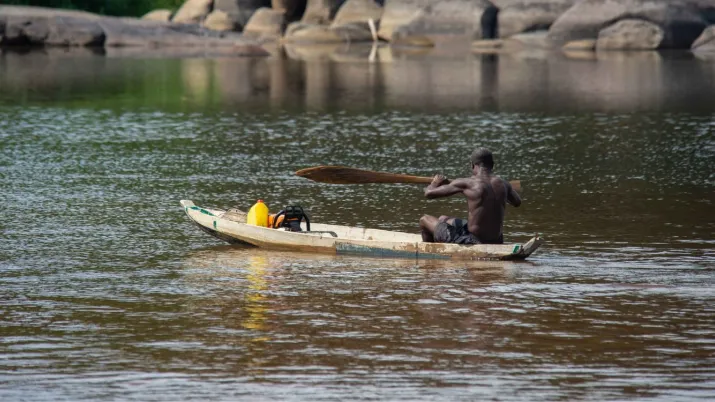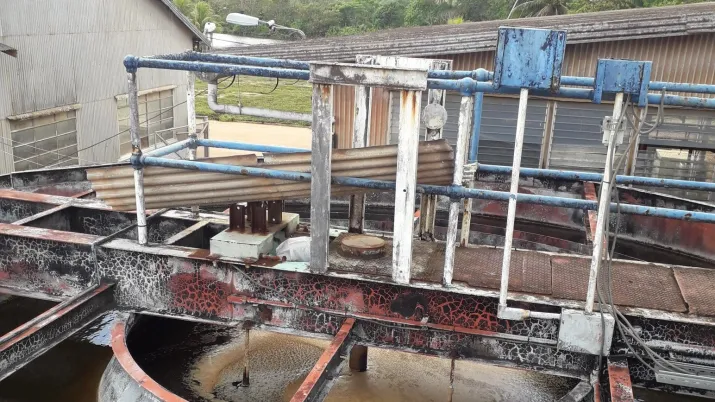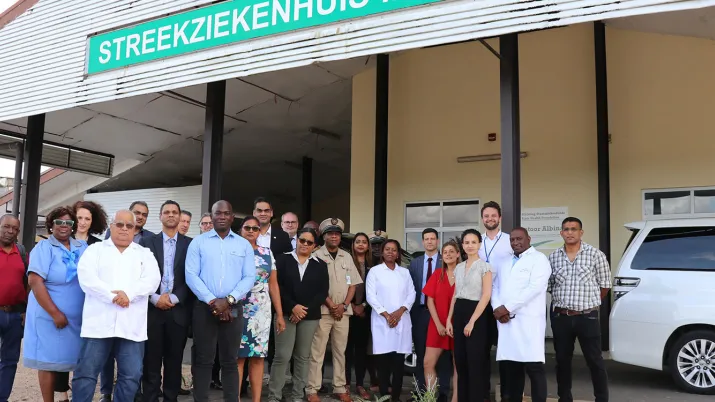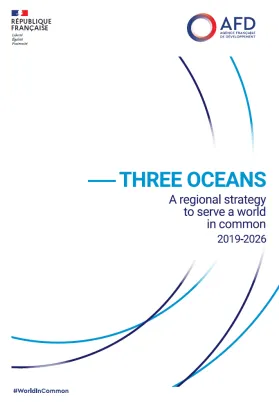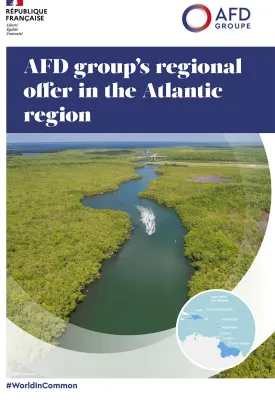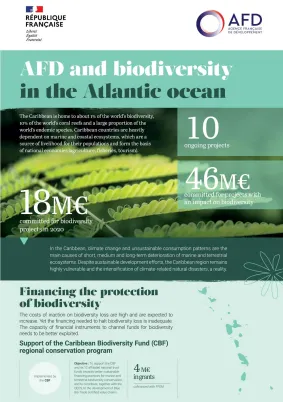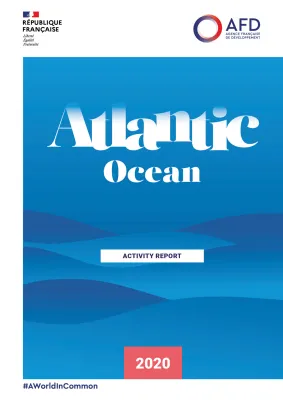Share the page
Suriname
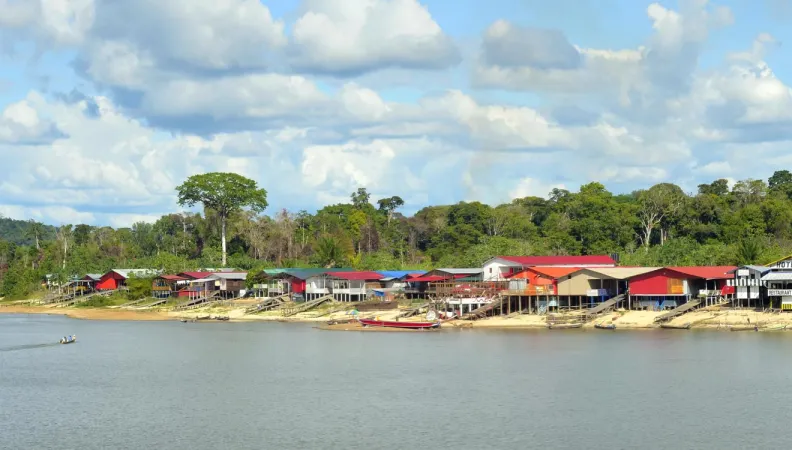
Suriname is on the northeast coast of South America between Venezuela and Brazil. Despite being rich in natural resources – it’s nearly 93% covered by the Amazon rainforest – Suriname is going through a severe financial crisis and faces many significant economic, health, and social challenges.
AFD assists Suriname in two key areas: 1) supporting more sustainable and environmentally friendly economic and social growth and 2) building up regional cooperation, especially in the east of the country, with French Guiana.
Context
Located in South America on the Guiana Shield, Suriname borders the Atlantic Ocean to the north. The country’s economy is dominated by extractive industries – gold, oil, timber, and bauxite – which account for a large share of national activity.
The sharp drop in commodity prices in 2015, followed by a political crisis and the Covid-19 pandemic, plunged the country into a severe economic and financial crisis during which AFD was forced to suspend its operations.
In 2022, an agreement was signed with the IMF and the Paris Club to restructure the country’s public debt, which had gone into default. Despite efforts, the country’s economic situation remains fragile. However, AFD was able to resume its activities in 2023.
With its outstanding natural heritage, Suriname is the most forested country in the world and an exceptional biodiversity reserve.
Present in Suriname since 2000, AFD supports the Surinamese government across the country and along its coastline, including in remote areas. Its current mandate focuses on regional cooperation and green, inclusive growth, particularly in the health, biodiversity, drinking water, and solid-waste management sectors.
Our approach
"AFD and Suriname: promoting regional cooperation and green, inclusive growth"
Since the mid-2000s, AFD has been helping to improve healthcare services in Suriname and supporting bilateral cooperation between France and Suriname in the health and hospital sectors.
To address the shortages and obsolescence of health-related infrastructure and equipment, both in inland Suriname and its capital Paramaribo, AFD is financing the modernization of healthcare services.
AFD has also supported the country in the prevention of epidemic diseases, which are particularly prevalent in the border area with French Guiana. The implementation of common strategies between the two countries has improved epidemiological surveillance.
Since 2008, AFD has been supporting the construction and commissioning of a 40-bed hospital in Albina, in eastern Suriname, to improve access to healthcare for rural communities in the Maroni region. This project aims to reduce regional health inequalities by strengthening community care and expanding the regional coverage of hospital facilities. It is also part of a cross-border cooperation initiative with the Western French Guiana hospital (CHOG), which aims to develop a coordinated approach to health-related issues between Suriname and French Guiana.
Water is an abundant resource in Suriname. The country has some of the highest quality water in the world. However, at present, the supply of drinking water depends largely on underground resources, notably contained aquifers that are not refillable and which are vulnerable to rising water levels.
Suriname’s water authority provides drinking water to 98% of the population and has a good record of technical and commercial performance. Nevertheless, a response must be prepared to deal with the water supply challenges this authority is facing. In order to meet the growing demand, AFD is helping the water authority to increase its capacities and make the transition to sustainable water resources. To meet growing demand, AFD is helping the water authority to improve access to water and the quality of its services.
Sanitation is also a key issue. Untreated wastewater is being released into the natural environment and the country is experiencing strong urban growth.
Rainforest covers nearly 93% of the land surface, 91% of which is primary forest. This virgin forest is home to many species and hosts some of the richest biodiversity on the planet. But the forest is threatened by human activities such as gold panning and logging, whose management is not always sustainable. In addition, chemicals such as mercury are used for gold mining, leading to water and soil pollution and endangering indigenous populations.
To help protect the Amazon rainforest, AFD is involved in several projects that actively combat deforestation and the use of mercury in gold mining. It also supports Indigenous communities in moving toward more sustainable management of forest resources.
95% of the waste produced in Suriname, including toxic and hazardous waste, remains untreated. It is dumped in open landfills where the health and environmental framework is weak or non-existent.
The production of waste is growing significantly along with population increase, causing huge health, environmental, and social impact.
To help Suriname better control its waste management, AFD is financing a study to evaluate practices in the capital and in the east of the country. This study will help identify suitable collection and treatment solutions to be co-built with Suriname.
In the field
News & Press Releases
Validation of the strategy for the operationalisation of Marwina hospital
On Friday 1 December, a delegation led by the Surinamese Minister of Health, Dr Amar Ramadhin, the French Ambassador in Suriname and Guyana, Nicolas de Lacoste, and the Director of the Suriname-Guyana...
Publications & Media
Key figures
-
2000 Start of AFD’s activities in Suriname
-
20% of Surinam's population to benefit from improved drinking water service
-
€66 million committed by AFD in Suriname since 2000

